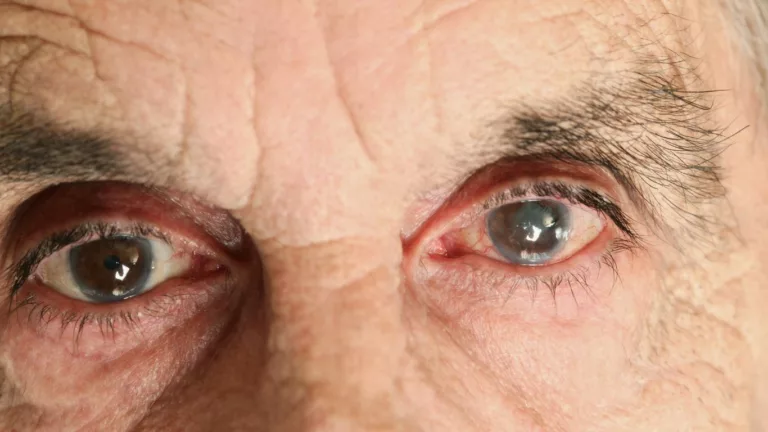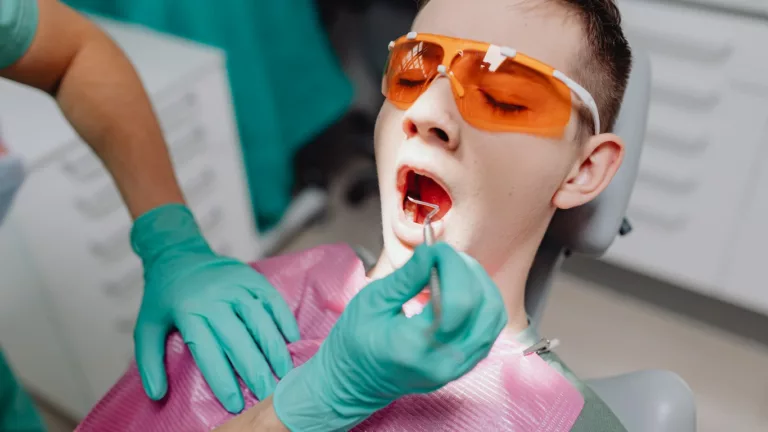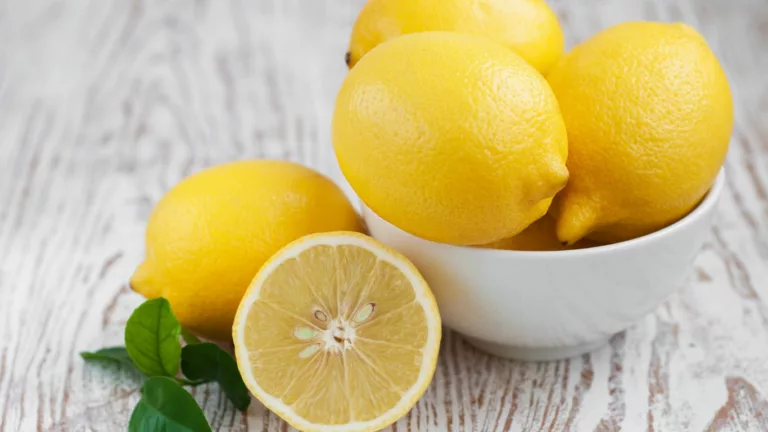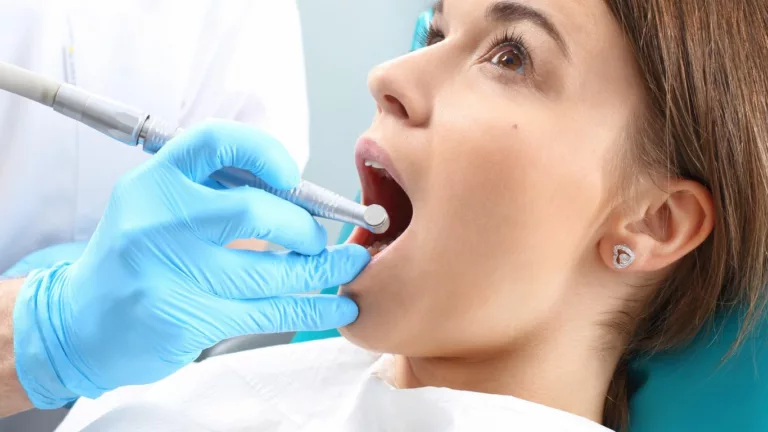Are Porcelain Veneers Permanent? Debunking the Myth
Unravel the truth about the permanence of porcelain veneers. Learn about their longevity, maintenance, and considerations in our comprehensive guide.
Porcelain veneers have gained immense popularity as a cosmetic dental solution for enhancing smiles. However, amidst the allure of a radiant grin, questions often arise about the longevity and permanence of porcelain veneers. In this comprehensive guide, we delve into the reality behind the myth of porcelain veneers’ permanence, providing insights into their durability, maintenance requirements, and essential considerations.
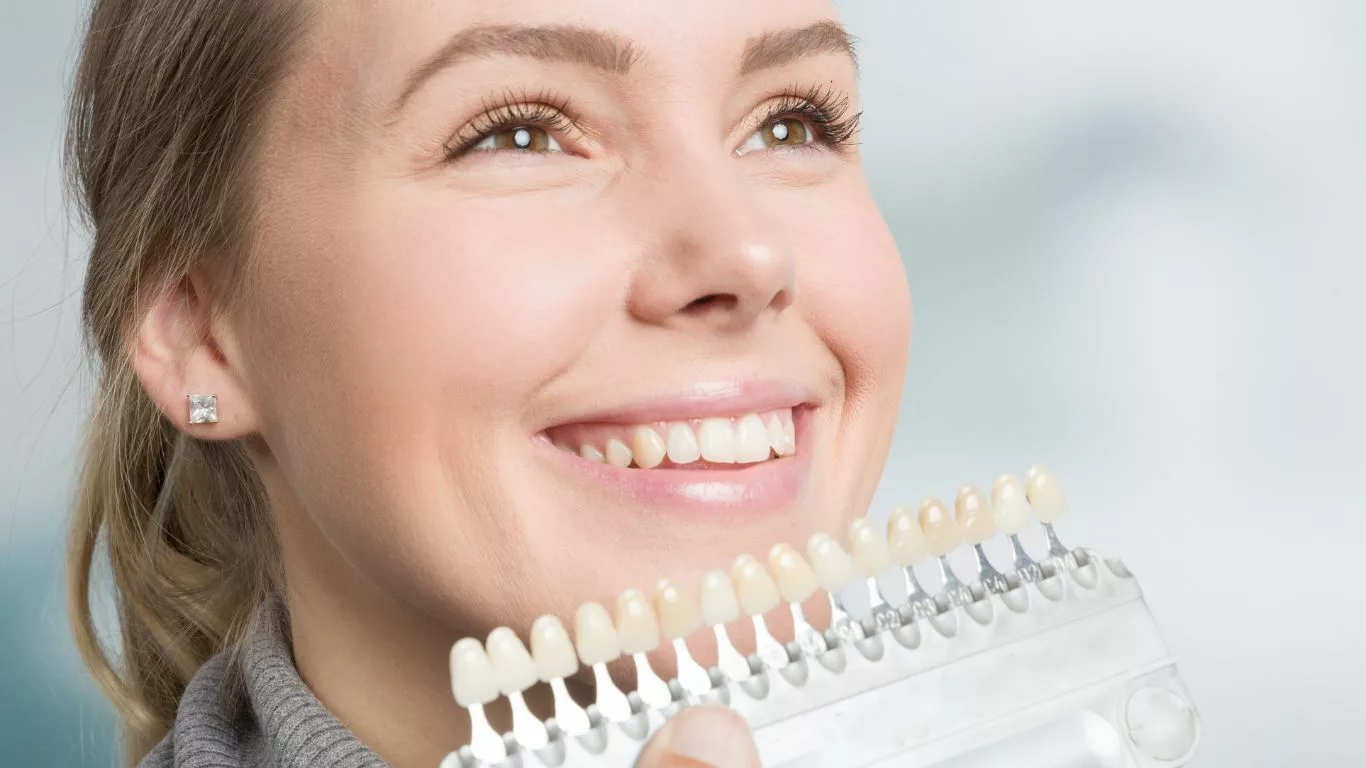
Understanding Porcelain Veneers
Before exploring the longevity of porcelain veneers, it’s crucial to understand what they are and how they function. Porcelain veneers are thin, custom-made shells crafted from medical-grade ceramic materials. They are designed to cover the front surface of teeth, effectively concealing imperfections such as discoloration, chips, cracks, or misalignment, while also improving the overall appearance of the smile.
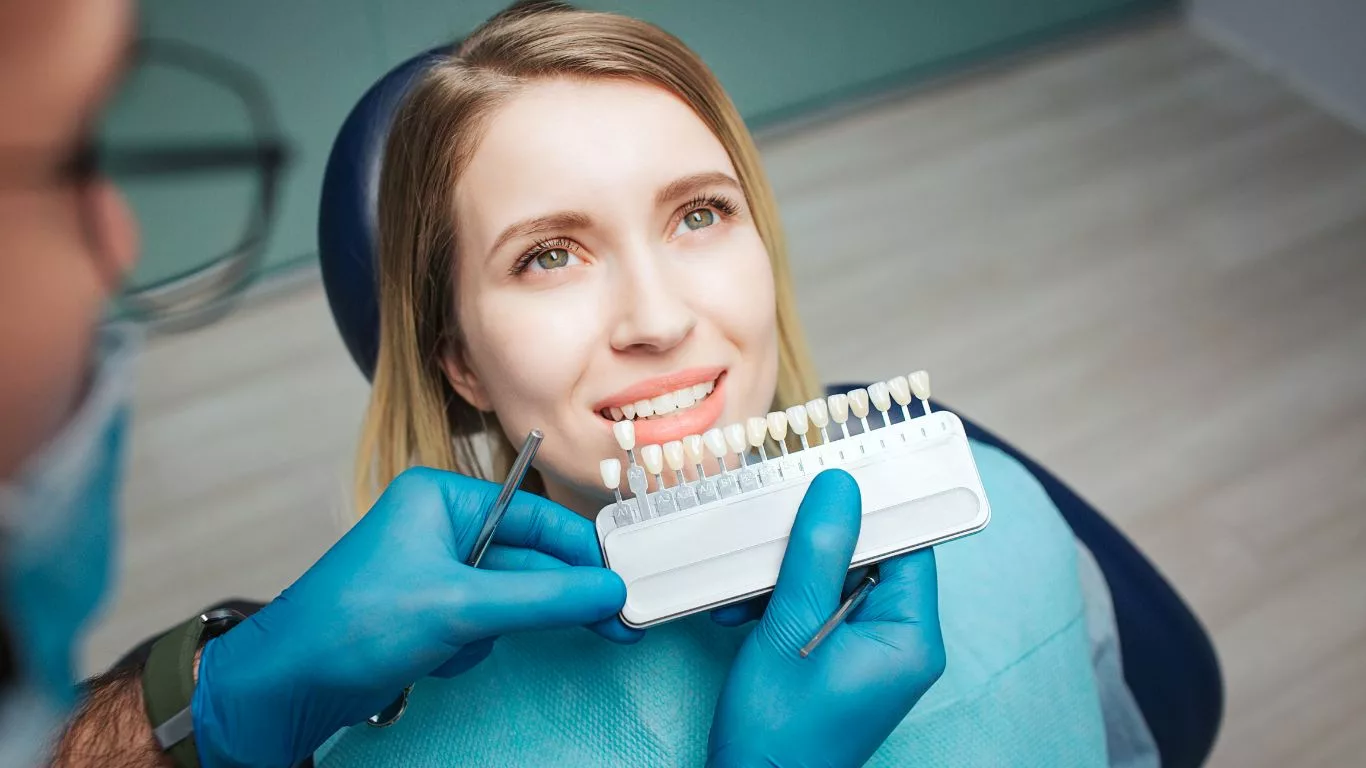
Dispelling the Myth of Permanence
Contrary to popular belief, porcelain veneers are not considered permanent dental restorations. While they offer long-lasting results compared to some other cosmetic dental procedures, such as teeth whitening, they are not indestructible and may require maintenance or replacement over time.
Longevity of Porcelain Veneers
The lifespan of porcelain veneers can vary depending on several factors, including:
- Quality of materials and craftsmanship: High-quality porcelain veneers crafted by experienced dental professionals are likely to offer superior durability and aesthetics.
- Oral hygiene practices: Proper oral hygiene, including regular brushing, flossing, and routine dental check-ups, plays a vital role in maintaining the integrity of porcelain veneers.
- Lifestyle habits: Habits such as teeth grinding (bruxism), nail-biting, or chewing on hard objects can increase the risk of damage to porcelain veneers and may shorten their lifespan.
- Natural wear and tear: Over time, porcelain veneers may experience normal wear and tear due to daily use and exposure to acidic or abrasive substances in the diet.
Maintenance and Care
To maximize the longevity of porcelain veneers and preserve their appearance, patients are advised to:
- Adopt a consistent oral hygiene routine: Brush teeth at least twice a day with a non-abrasive toothpaste and floss daily to remove plaque and prevent gum disease.
- Avoid excessive force or pressure: Refrain from biting on hard objects, such as ice cubes or pen caps, and consider wearing a mouthguard if you grind your teeth while sleeping.
- Attend regular dental check-ups: Schedule routine dental visits for professional cleanings and examinations to monitor the condition of your porcelain veneers and address any issues promptly.
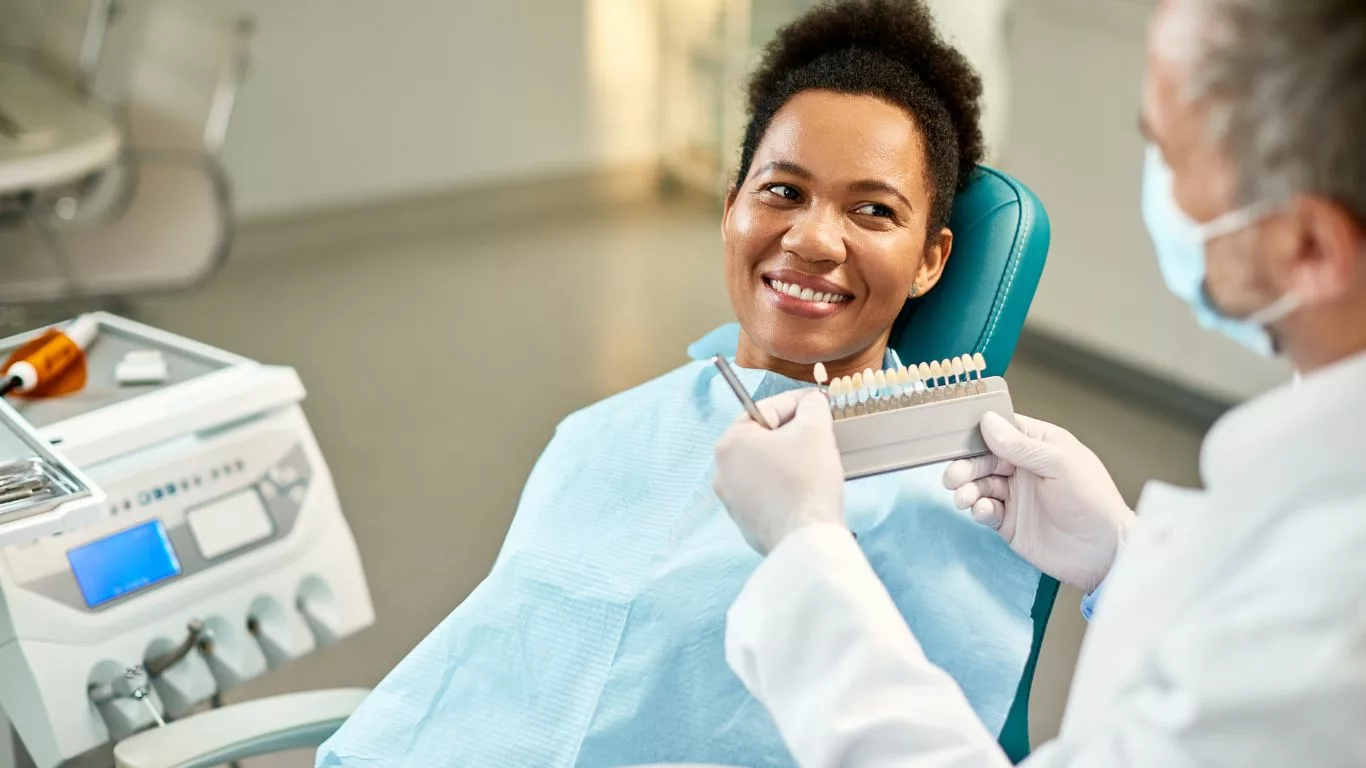
Considerations and Precautions
While porcelain veneers can provide significant aesthetic benefits, it’s essential to consider the following factors before undergoing treatment:
- Irreversible alteration of tooth structure: The process of applying porcelain veneers involves removing a small amount of enamel from the teeth. This alteration is irreversible, and patients should carefully weigh the pros and cons before proceeding.
- Potential for replacement: Although porcelain veneers are durable, they are not immune to damage or deterioration. Patients should be prepared for the possibility of replacement or repair in the future.
- Financial investment: Porcelain veneers are considered a cosmetic dental procedure and may not be covered by dental insurance. Patients should inquire about the cost of treatment and explore available financing options.
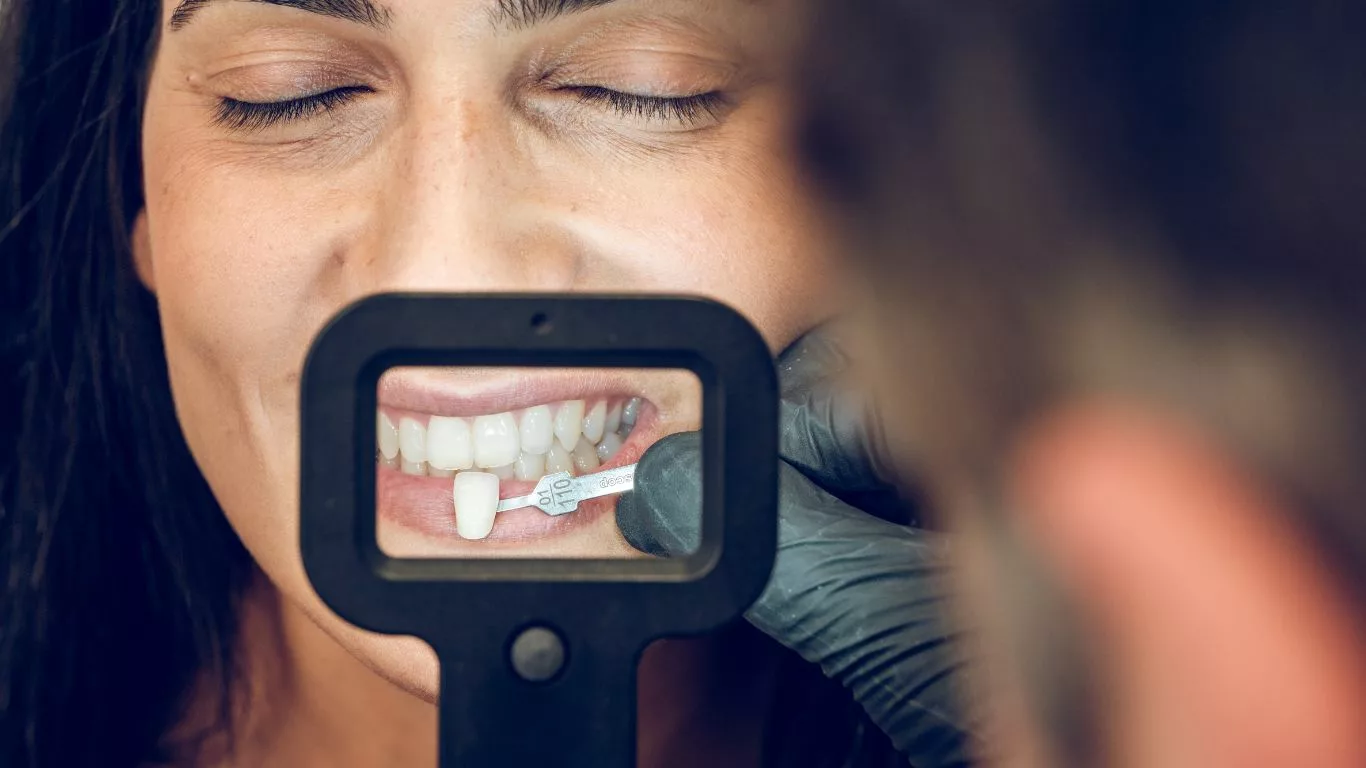
Conclusion
While porcelain veneers offer a transformative solution for enhancing the appearance of the smile, it’s important to understand that they are not permanent fixtures. While they can provide long-lasting results with proper care and maintenance, they may require replacement or repair over time. By understanding the factors influencing the longevity of porcelain veneers and following recommended maintenance guidelines, patients can enjoy the benefits of a radiant smile for years to come.
Appendices
References
For further exploration of the topic of porcelain veneers and their longevity, consider reviewing the following references:
- Peumans, M., De Munck, J., Fieuws, S., Lambrechts, P., & Vanherle, G. (2004). A prospective ten-year clinical trial of porcelain veneers. Journal of Adhesive Dentistry, 6(1), 65-76. Read Article
- Öztürk, E., Bolay, Ş., & Hickel, R. (2013). Survival of porcelain laminate veneers with different degrees of dentin exposure: 2-year clinical results. The Journal of Adhesive Dentistry, 15(6), 583-590. Read Article
- Christensen, G. J. (2008). Porcelain veneers in general practice: indications and limitations. Journal of the American Dental Association (1939), 139(8), 1239-1243. Read Article
FAQs
Here are some frequently asked questions about porcelain veneers and their longevity:
- How long do porcelain veneers typically last? The lifespan of porcelain veneers can vary, but they often last between 10 to 15 years with proper care and maintenance. However, individual factors such as oral hygiene habits, lifestyle choices, and the quality of the veneers can influence their longevity.
- What factors can affect the durability of porcelain veneers? Several factors can impact the durability of porcelain veneers, including oral hygiene practices, lifestyle habits (such as teeth grinding), the quality of the veneers and adhesive used, and regular dental check-ups to address any issues promptly.
- Can porcelain veneers be repaired if they get damaged? In some cases, minor damage to porcelain veneers, such as chipping or cracking, can be repaired by a qualified cosmetic dentist. However, extensive damage may require replacement of the veneers.
Related Table
Here’s a summary table of key information regarding porcelain veneers and their longevity:
| Aspect | Information |
|---|---|
| Typical Lifespan | 10-15 years |
| Factors Influencing Longevity | Oral hygiene practices, lifestyle habits, quality of veneers and adhesive, regular dental check-ups |
| Repair Options | Minor damage may be repairable; extensive damage may require replacement |
Note: Individual experiences with porcelain veneers may vary, and it’s important to consult with a qualified cosmetic dentist for personalized advice and recommendations.
Disclaimer: The information provided in this article is for educational and informational purposes only. It is not intended to be a substitute for professional dental advice, diagnosis, or treatment. Always seek the advice of your dentist or other qualified healthcare provider with any questions you may have regarding a dental condition. Never disregard professional dental advice or delay in seeking it because of something you have read in this article. Reliance on any information provided in this article is solely at your own risk.

Camellia Wulansari is a dedicated Medical Assistant at a local clinic and a passionate health writer at Healthusias.com. With years of hands-on experience in patient care and a deep interest in preventive medicine, she bridges the gap between clinical knowledge and accessible health information. Camellia specializes in writing about digestive health, chronic conditions like GERD and hypertension, respiratory issues, and autoimmune diseases, aiming to empower readers with practical, easy-to-understand insights. When she’s not assisting patients or writing, you’ll find her enjoying quiet mornings with coffee and a medical journal in hand—or jamming to her favorite metal band, Lamb of God.



